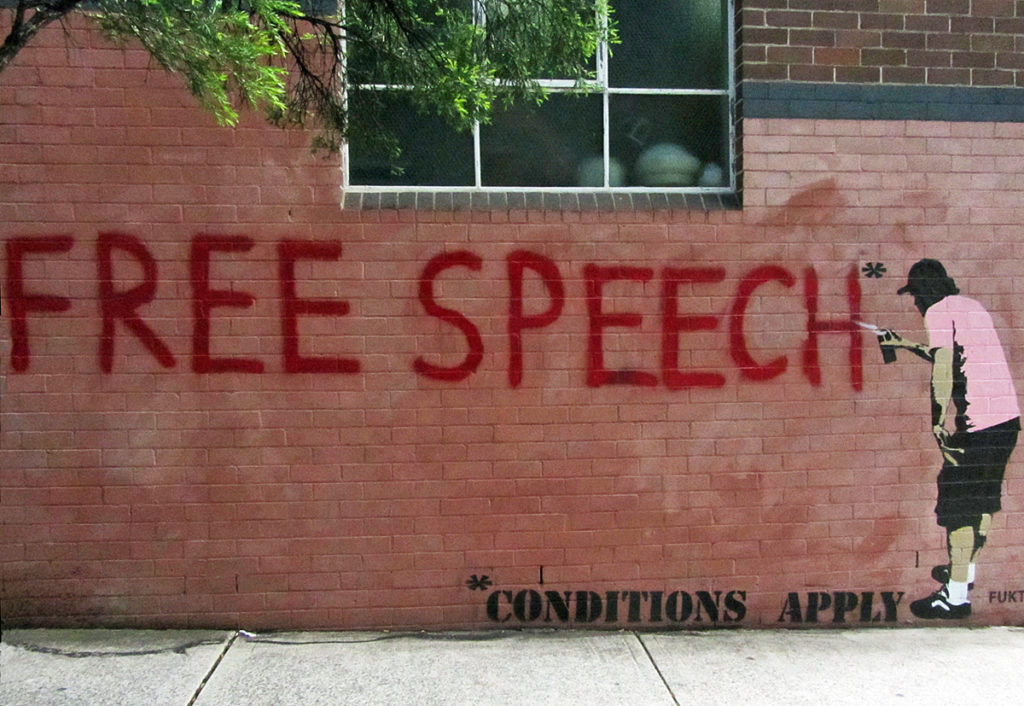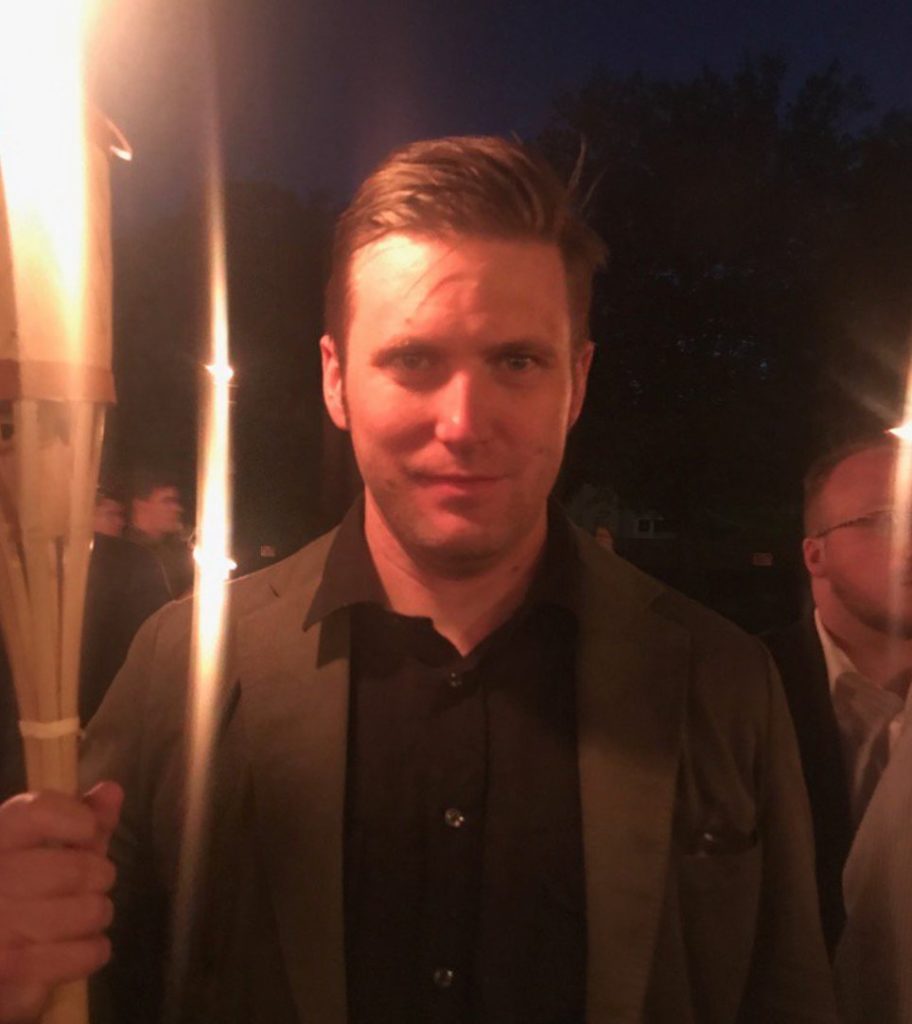 I write about free speech a lot; wrote my doctoral dissertation on it. I speak around the country occasionally defending free speech. Mainly I do this because I believe the first amendment protections are the only thing standing between Christians and the tyranny of the majority. That would be people like Lena Dunham who creeped around a couple of American Airlines employees tweeting (or was it instagraming?) about their conversation because they were saying things that were transphobic. Instead of, you know, talking to them.
I write about free speech a lot; wrote my doctoral dissertation on it. I speak around the country occasionally defending free speech. Mainly I do this because I believe the first amendment protections are the only thing standing between Christians and the tyranny of the majority. That would be people like Lena Dunham who creeped around a couple of American Airlines employees tweeting (or was it instagraming?) about their conversation because they were saying things that were transphobic. Instead of, you know, talking to them.
Can you imagine what she do if she heard a couple of Christians discussing Romans 1? And then there are statues and protests and white supremacists carrying tiki torches they bulk purchased at Big Lots. Numskulls ruining it for everybody. So given all the “free speech” conversations you will have in this climate I thought I’d provide some helpful distinctions.
A couple of caveats: Free speech is complicated. The term carries more baggage than American Airlines. Like John Stuart Mill, I prefer “Unregulated Sentiment and Opinion” for reasons that will become clear. Free speech has never ever been about freedom to say whatever you want whenever you want to say it. If you think about it, that would be impossible. People who say free speech has no exceptions aren’t thinking it through.
First, it is true that the First Amendment (hereafter 1A) covers the state restricting speech not individuals. So there is a difference between the First Amendment and Free Speech. However, there are plenty of Supreme Court cases that protect individuals from others violating their speech rights. Most of these are what we in the free speech game call time, place, and manner restrictions. These are designed to prevent numbskulls from ruining it for everyone. It isn’t a violation of the First Amendment to regulate when, where and sometimes how someone expresses themselves. You can’t yell fire in a theater for giggles and I can’t protest in the middle of a McDonalds. Neither of us can express ourselves with violence no matter what knuckleheads like Antifa say.
What makes these sort of restrictions acceptable is that they don’t regulate the content of someone’s speech just the means for its expression. Free Speech culture in the US does not take kindly to censoring content. There are exceptions. We think its pretty much okay for employers to restrict campaign posters and rhetoric in the cubicles at work. Notice that’s still restricting a whole class of content but only during a time and place.
That is a long way from restricting a viewpoint from public discussion–a 1A no-no. One Supreme court justice said it this way:
If there is any fixed star in our constitutional constellation, it is that no official, high or petty, can prescribe what shall be orthodox in politics, nationalism, religion, or other matters of opinion or force citizens to confess by word or act their faith therein. If there are any circumstances which permit an exception, they do not now occur to us.
Ironically that was from a case where our perennial adversaries the Jehovah’s Witnesses were threatened with expulsion if they didn’t pledge allegiance to the flag (West Virginia Board of Education v. Barnette) . This concept can best be called viewpoint neutrality. If there are exceptions to free speech (and there always are) it should not make the viewpoint unspeakable or inexpressible.
To sum up: free speech is complicated. By necessity it can’t be freedom to say whatever you want whenever you want it. When it comes to conditions on free speech, time/place/manner restrictions that don’t suppress any particular content are best. If UVA said “no torches on campus” this would be content neutral even if the only knuckleheads who would use torches to protest are white nationalists. Content restrictions are worse. If Charleston WV made an ordinance that banned all political parades but allowed gay pride parades this would be arguably content specific and a no-no. But worst of all are exceptions that suppresses a viewpoint. Germany’s holocaust denial regulations fit this category. So would most hate speech laws.
The levels of regulation hint at the core of free speech and precisely why Christians should defend it. The core of Free Speech is not the right to emote but to persuade. Free Speech is the protection not just of the thought we hate but the right to persuade, warn, etc and vice versa.
I know its a surprise but some people hate the gospel message. They find it repugnant, divisive and worst of all exclusive. How dare we? Some people tolerate us provided we stay out of the public square. Live your stupid homophobic, hate filled lives but don’t advocate for it. Just shut up. Shut up about the Gospel is the one thing we cannot do. For Christianity is the only religion where peaceful, advocacy for the Gospel is commanded.




I am a university student going for an MA in Education. There is not one public university in the States that does not push, to one degree or another, the Paulo Freire idea of “social justice,” which is based on a Marxist-totalitarian ideological core. His book, “Prodigy of the Oppressed,” was published in 1970, and it has become the central gospel with which all credentialed teachers must give assent to.
Social justice recognizes one and only one ideological position: Its own. It has been the backbone ideology of all the leftists supporting Bernie Sanders and Barack Obama. It is totally intolerant of any opposing views. Antifa, ironically enough, as well as Black Lives Matter, are offshoots of this. I have personally heard teachers in the local public schools advocate to their students civil disobedience because of President Trump’s election.
When social justice warriors (SJWs) cry “free speech!”, what they are really demanding is acquiescence to their position. They do not want anybody to voice an opposing point of view.
Ironically, if anybody tries to push Paulo Freire’s ideas of social justice in China, they would quickly become candidate residents for one of the many black jails there. No totalitarian regime could accept what SJWs demand. Should the SJWs ever win control of the States, there will arise a totalitarian regime that would put their leaders in jail just after Christians, Muslims, conservatives, academics… The academics in those public universities, like the one I’m attending, do not understand what China’s Hundred Flower’s Campaign really created.
Of course, we Christians can take heart. We trust in Jesus and His Lordship over all, not in the United States government. We also know the ultimate end of all these turmoils – Christ’s second coming. But whenever possible, especially through the ballot box, we do need to cast votes. I personally like what I have been reading from Midwest Christian Outreach… it recognizes the ultimate end of things.
Amen
Agreed. The social justice gospel if you will is a thinly veiled Marxist idea to redistribute the wealth of all except the elites, eliminating the middle class and completing the conversion of this country into a welfare socialist state as progressive elites tighten their grip on the political, socio-economic and legislative steering wheel. This is the third slavery that Democrats, now progressives have been pushing ever since the end of the Civil War for the purpose of controlling the masses, power and wealth via divide and conquer. If elected Hillary and the Clinton camp would have done (and continues to strive to do) what George Soros, Obama and scores of others have attempted to accomplish. That’s what Obamacare (ACA) has been all about including Obama’s dealings with the banks, supreme court justices, reproductive rights and education. Saul Alinsky would have been proud as the Obama administration followed his steps to socialism by the numbers in textbook fashion. It should also not be a surprise that this movement has sought to suppress any dissenting voices that would call out this movement for its efforts to debase our country of its moral moorings and core values embedded in our Declaration of Independence, Bill of Rights, Constitution and its amendments.
However we can take heart in Jesus’ words…”Don’t worry for I have overcome the world”…and He is coming soon.
In the meantime it is critical to the survival of this country and more importantly for our walk with Christ to engage the culture delivering the gospel and calling this nation to repentance while remembering the Lord’s appeal to his own…’ If my people would just repent and turn from their sin I would heal their land’
Amen
When will somebody write a book about how the “Social Justice” of Paulo Freire has infiltrated our public school systems? People need to know that Antifa, Black Lives Matter, et al, is just the beginning of the storm created by over a generation of instruction based on this totalitarian system.
At the same time, there is also the totalitarian system of Sharia Law that is gaining more and more traction, ironically by the very same social justice warriors promoting a totally opposed form of totalitarianism.
Amen